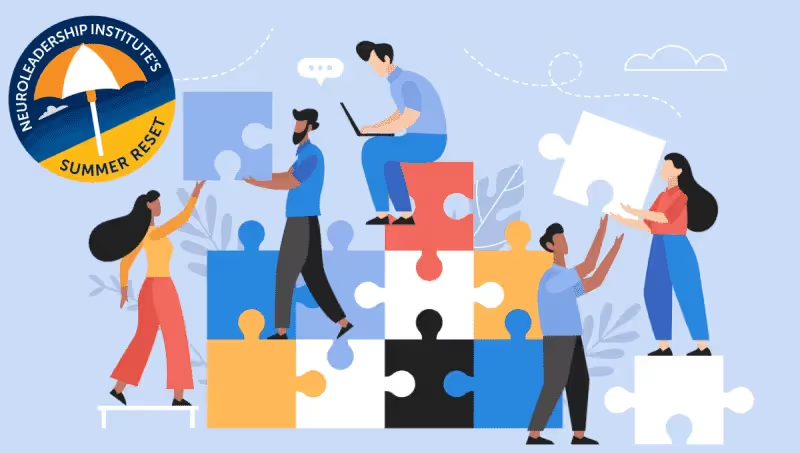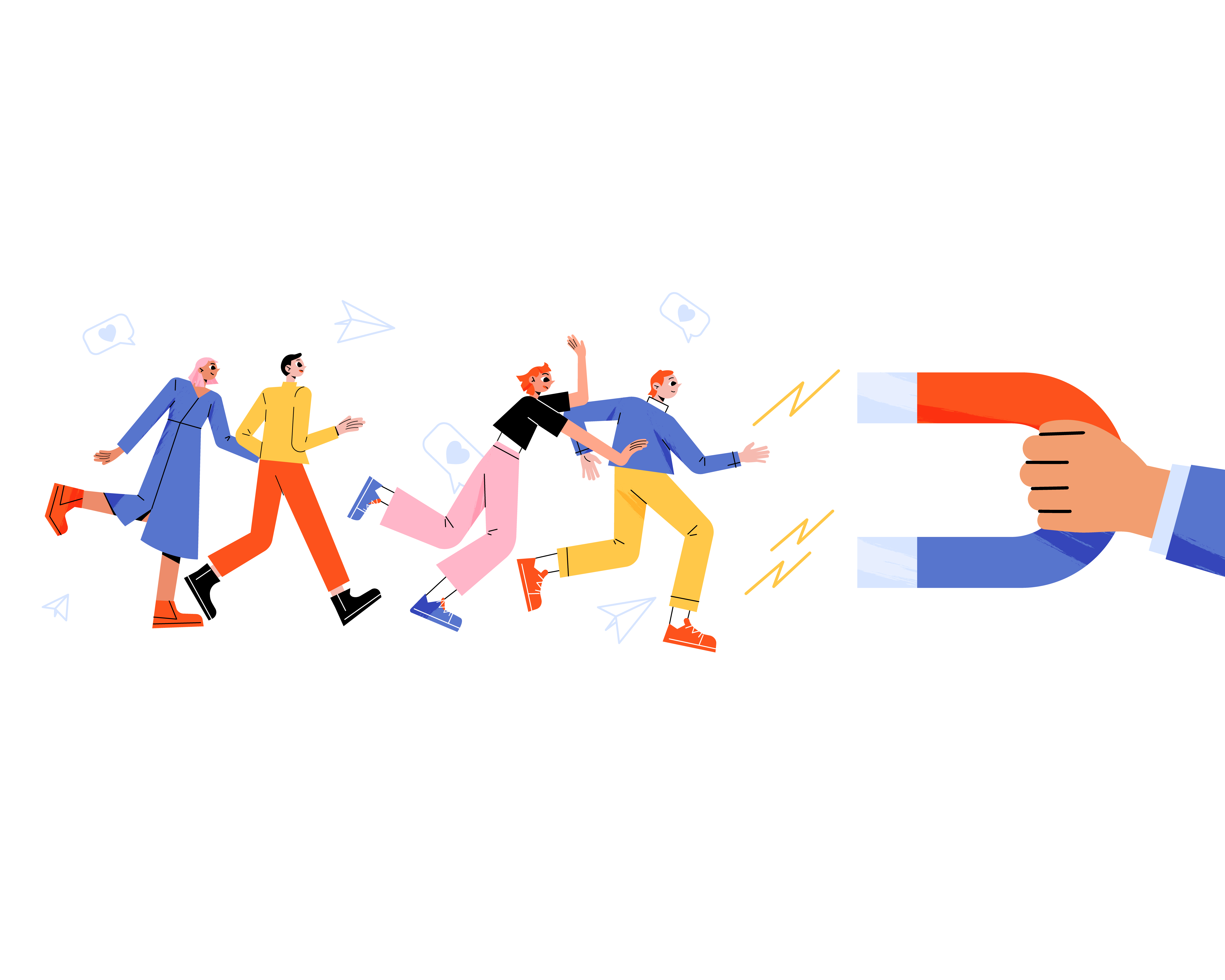During the pandemic, work stress rose across the board as people struggled with uncertainty, isolation, and burnout. At the same time, puzzles — from old-school jigsaw varieties to mobile games such as Candy Crush — surged in popularity to combat boredom or pass the (quarantine) time. And with many people working from home, it was easy to sneak a quick game of Tetris in between Zoom calls.
But now that people are returning to the office, will the games be left at home? We hope not because puzzles play an integral role in stress relief. They can help create moments of mindfulness in which we temporarily forget about stressful situations. Moreover, they spark creativity and, in a group setting, collaboration. Co-workers putting together a jigsaw puzzle in the break room have a tangible reminder of their contributions in pursuit of a common goal. Plus, puzzles are play time , which can help spark innovation.
So as you head back to the office, continue working from home, or settle into a hybrid combination, for your brain’s sake, don’t ditch the puzzles:
They can reduce stress.
Chronic stress wreaks havoc on the mind and body. Perceived threats, such as a tight work deadline or a negative comment from a co-worker, can trigger a stress response via cortisol, the primary stress hormone. Although a stress response is usually temporary, persistent threats can elevate cortisol and other stress hormones over the long term. This can disrupt almost all of the body’s natural processes and increase the risk of health problems such as anxiety, depression, sleep disturbances, memory impairment, and lack of focus.
Although researchers hypothesize that jigsaw puzzles could reduce cortisol levels, more research is needed to determine whether this is actually true. A study of stress in video game players revealed that puzzle games reduced salivary levels of cortisol and alpha-amylase (another marker of stress), in contrast to action-oriented games, which increased the levels of these stress indicators. It’s currently unknown which types of puzzles are the best stress busters, but it stands to reason that games with a competitive aspect might be less effective at reducing cortisol levels than those that don’t involve time limits or comparisons with other players.
They can trigger dopamine release.
You’ve probably felt the rush of achievement or “aha” moment that comes from solving a Wordle or snapping a jigsaw puzzle piece in place. That pleasurable feeling comes from the release of the feel-good hormone dopamine. This neurotransmitter plays a pivotal role in the brain’s reward system and can keep us coming back for more, which is why we’re tempted to solve one more sudoku or start another crossword.
In addition to making us feel good, dopamine can improve memory, motivation, and attention. In contrast, too little dopamine can leave us feeling tired, moody, and unmotivated.
They might stave off age-related declines.
Many older adults play puzzle games in hopes that they’ll keep their brains sharp and guard against age-related diseases like dementia or Alzheimer’s. The general idea is that cognitively stimulating leisure activities increase neuroplasticity — or the brain’s ability to adapt and make new connections throughout our lives. As we age, our brain structures begin to decline. Scientists have hypothesized that puzzles and games might help compensate by forming and strengthening new connections in the brain.
The few studies that have examined the effects of recreational puzzle games on cognitive abilities have produced conflicting results. A study of 100 healthy adults ages 50 and older showed those who’d done puzzles frequently throughout their lifetimes scored higher in cognitive tests for processing speed, reasoning, and working memory than those who had little puzzle experience.
The same study also tested whether solving puzzles for at least an hour a day, six days per week for 30 days could improve cognitive abilities. The researchers found no significant cognitive improvements in puzzlers compared with a control group. “Our results strengthen the evidence that cognitively demanding activities benefit cognition over the long term, but there are no ‘quick fix’ solutions,” the researchers say.
Studies of other types of puzzles, such as sudoku and Scrabble, have shown similar results: People who frequently engage in these activities score higher on some tests of cognition, but it’s still unclear whether puzzles actually protect against dementia or other forms of cognitive impairment. A study of competitive Scrabble players revealed that they can tap into different brain regions than non-players to recognize words faster, especially in the vertical orientation. However, these benefits don’t transfer to another game using non-letter symbols. This finding suggests that although puzzles might improve people’s skills at a particular game, the improvements might not transfer to other areas of their lives.
Whether or not puzzles can actually increase brain power, they are, for most people, an enjoyable release from the stresses of everyday life. At home or work, taking a puzzle break could be just what the brain needs to refresh and refocus amid stressful, difficult, or monotonous tasks.






.avif)

